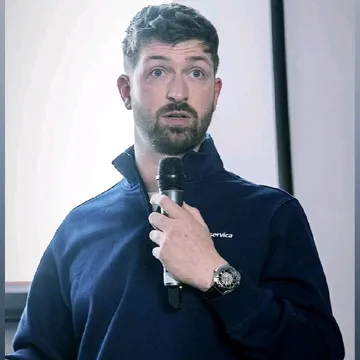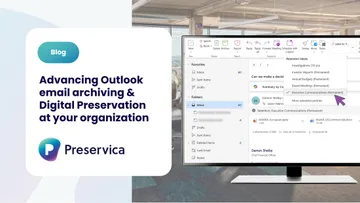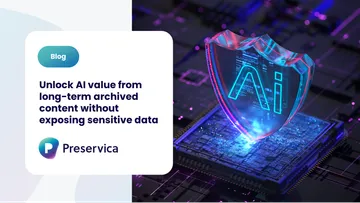Advancing Outlook email archiving & Digital Preservation at your organization
 Sam Butler
•
October 9, 2025
Sam Butler
•
October 9, 2025

Email remains a cornerstone of communication in both government and commercial organizations. Yet, preserving it efficiently and intelligently - especially emails of significant individuals or elected officials, or events and incidents - continues to be a major challenge. At Preservica, we’ve been working closely with users to tackle this head-on, and I’m excited to share some of the latest developments and insights from our journey to date.
Expanding Preserve365 to Outlook
Earlier this year, we expanded Preserve365® - our embedded archiving, digital preservation and discovery solution for Microsoft 365 - beyond SharePoint to include Microsoft Outlook. This was a significant step forward in helping organizations preserve critical email records directly within the Microsoft ecosystem.
What we learned from the Early Access Group
We also launched an Early Access Group (EAG) for Outlook email preservation. Hundreds of participants from across sectors joined us to explore our Early Preview software, share feedback and collaborate on shaping the future of embedded email archiving and preservation.
Through surveys and interactive workshops, we gained invaluable insights. One of the most appreciated aspects was how our embedded approach - working natively within Microsoft 365 - offers a more seamless and efficient alternative to traditional, siloed email archiving solutions.
Insights from Council of State Archivists (CoSA) Conference 2025
I also had the privilege of attending the CoSA 2025 conference in Salt Lake City, where I met with US state archives teams and heard first-hand about their challenges and strategies for archiving and preserving emails.
Back in 2023, a CoSA survey found that 82% of state archives expect their email holdings to grow significantly in the next five years, with an estimated 4 million new emails per archive by 2026. By that time, email could comprise over 20% of public archives’ digital collections.
Email archiving: challenges & opportunities
Here are some of the key takeaways from our Outlook email preservation EAG conversations and the CoSA meeting that are directly shaping our product development:
- Email is here to stay: Despite the rise of messaging platforms, email remains the go-to communication tool due to its simplicity and familiarity
- Email volumes are still growing: I think we all know that - but it is also backed by the CoSA 2023 study and other research
- Manual sorting doesn’t scale: Employees rarely categorize emails by historical or legal value, making inboxes difficult to manage from a records perspective
- Centralized governance is key: Organizations are moving toward centralized control to ensure important records are captured and preserved
- Capstone approach still prevails: Rather than sorting individual emails, entire mailboxes of key roles (e.g., governors, directors, CEO) or emails related to major incidents, projects or events - are designated for automatic preservation
- Classification matters: Reducing storage costs and clutter is also a driver, by only archiving and preserving what really matters and deleting ROT (redundant, obsolete, trivial) emails
- Complete discovery is critical: For FOI, legal, or historical purposes, it’s vital to properly preserve the full context of an email - email body, all attachments, metadata and more – as well as be able to seamlessly search for and view other related records across SharePoint or Teams
Join the next Early Access Group to advance email archiving at your organization
We’re now moving Preserve365 for Outlook into Beta, and we’re inviting more organizations to join.
We are holding our next Early Access Group meeting for Outlook email preservation on 22 Oct 2025
- If you are already a member then watch-out for your invite
- If you are not currently signed-up and would like to join the group go here.
This is your chance to see how we’ve incorporated feedback from early participants and government institutions - and learn best practice in helping to shape the next generation of email preservation tools.
If your organization is grappling with email archiving, digital preservation or discovery, I’d encourage you to join the Early Access Group and be part of the conversation.




